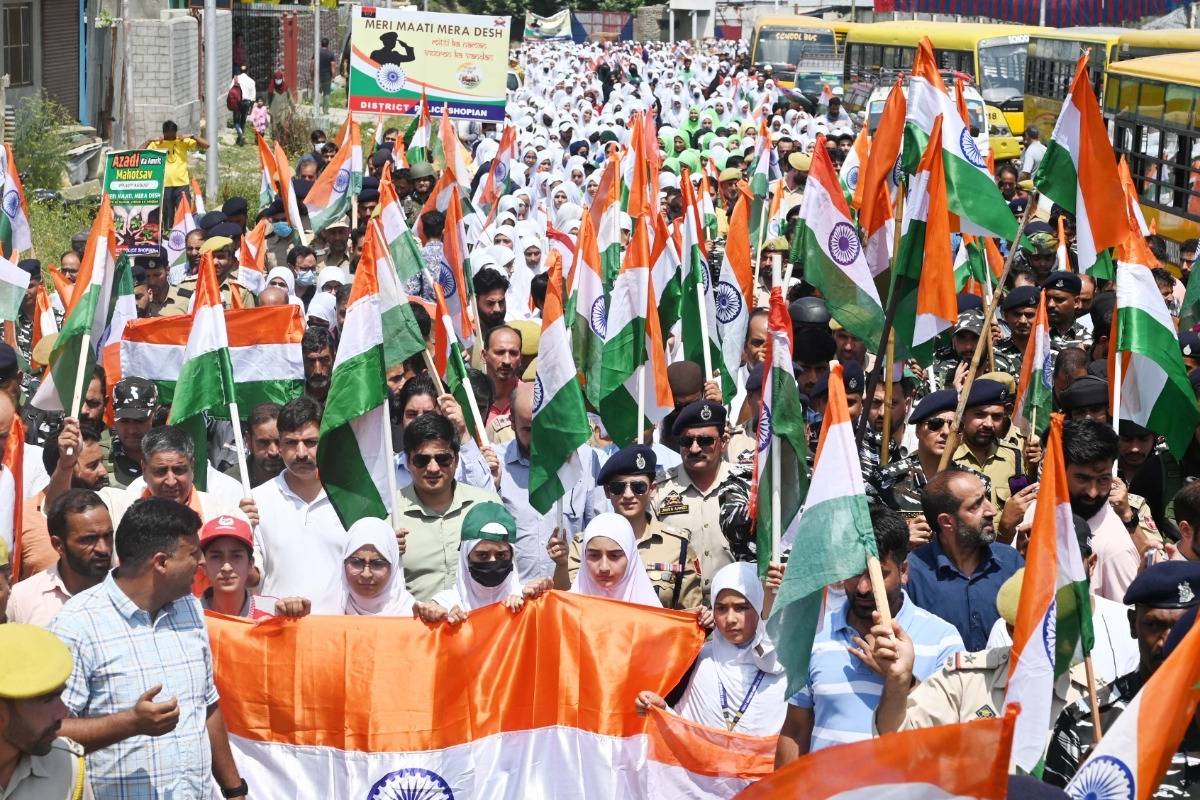One of the most prominent politicians of Kashmir once stated that while Article 370 granted autonomy to the government of Jammu and Kashmir from the Government of India, it offered no autonomy to the people of the region. He was correct. In fact, the special provision actually stripped away rights of the people of the former state.
Indeed, Article 35-A secured their exclusive land possession in J&K. However, in the initial years after independence, Article 370 deprived them of the fundamental rights guaranteed to all other citizens by the Indian Constitution. Furthermore, due to Article 370, they received diluted panchayat laws and the right to information – belatedly.
As the political class reaped benefits from Article 370 for decades, they were content to keep the public in the dark about its true implications. This allowed them to evade accountability, audits, taxes, and various civic duties.
Now, they are out of power. However, even four years after the constitutional changes, the long saga of missed opportunities has still not been explained to the people of Jammu and Kashmir.
Untold stories
The wily politicians who held sway in the state all these years wanted to keep the question of the state’s ultimate allegiance – India or Pakistan – open-ended. Around 1953, they propagated that Nehru was a mere façade for the RSS, which they claimed was the true face of India. And yet, when it suited them, they aligned formally with the BJP when it governed at the Center during the past quarter-century.
ALSO READ: Opportunity to rehabilitate Pandits back in Kashmir might be lost
Throughout this period, there was no incentive for them to expose Pakistan’s shortcomings. Little wonder that many in Kashmir are largely unaware of the mass rapes and other atrocities committed by the Pakistan Army in East Pakistan before it became Bangladesh.
Ironically, even four years after the constitutional changes, not much has been explained about the darker aspects of Pakistan or the true implications of Article 370.
Since Sheikh Abdullah’s insistence on its inclusion in India’s Constitution, Article 370 had been diluted to a point where, in some aspects, it granted the Centre more power over the state than over any other.
The widespread protests that swept through much of Pakistani Punjab and NWFP in May provided an obvious opportunity to address the Pakistan Army’s oppression of its people. The state forces brutally suppressed these protests, dragging women by their hair on roads and causing the disappearance of many. Reports of sexual violence in detention emerged.
The protests stemmed from the arrest of former Pakistan Prime Minister Imran Khan, who was popular among many Kashmiris. Discussions on Pakistan’s ruthless treatment of its citizens – especially in parts of Jammu and Kashmir under Pakistani control — could have been held in schools, colleges, and beyond. However, the lack of response from those wielding power in J&K is bewildering.
Wasted funds
Propaganda serves as a significant tool for every government. At the very least, those in power aim to circulate impressive and pleasing images of top leaders – sometimes showing them interacting with children, meeting foreign leaders, or inaugurating projects for citizens.
ALSO READ: J&K is trapped in a bureaucratic mesh, and lacks vision, direction
More subtle tactics often convey an ideological bias, ranging from democracy to the greatness of a leader portrayed as a towering figure, a revolutionary spirit, or a divine endorsement for the regime, or even showcasing a nation’s strength against perceived adversaries.
Huge amounts of money have been spent on propaganda campaigns in Jammu and Kashmir in recent years. However, these endeavors have largely been fruitless, if not counterproductive. They have often been spearheaded by officers lacking communication training or expertise. A couple of years ago, some of them enlisted a bunch of activists looking to make money, to amplify their slogans and other points on social media. They liked and shared each other’s posts on social media — making little impact beyond their charmed circle. They also organised events, again attended largely by the willing.
Sadly, one of the finest battle strategists brought his previous communication-related responsibilities to Srinagar, squandering valuable talent on ventures that yielded no evident gains. More than one high-ranking officer under his command also invested substantial time in similar activities, some seemingly exclusively.
Meanwhile, a resurgence of militancy was evidently brewing, as witnessed in both south and north Kashmir. For years, I have argued that the forces should focus on their core responsibilities and fully deploy their expertise honed through rigorous training.
Prioritize long-term goals
Rather than allocating substantial funds for events and social media posts of dubious value, the government should prioritize engaging in grassroots discussions (e.g., classroom dialogues on recent events in Pakistan).
A systematic overhaul is imperative in the long term. The education system, particularly in primary schools and higher education in the Humanities, as well as professional courses for journalists, lawyers, and other influencers of society, needs significant improvement.
Training for primary school teachers is an urgent area of concern. For, teachers training was in shambles in the past. Good teachers with a positive, inclusive orientation could change the minds and hearts of the next generation. That sort of change is vital for long-term peace and security.
Over the past week, some schools in Kashmir have temporarily suspended regular studies to practice the national anthem in preparation for Independence Day. A more impactful approach would involve integrating positive values and practices into the everyday curriculum and lived experiences.
(David Devadas is a seasoned journalist with a deep understanding of the Kashmir issue, having written The Story of Kashmir and The Generation of Rage in Kashmir (OUP, 2018). He also analyses politics, geopolitics and security matters.)
Disclaimer: Views expressed above are the author’s own.









